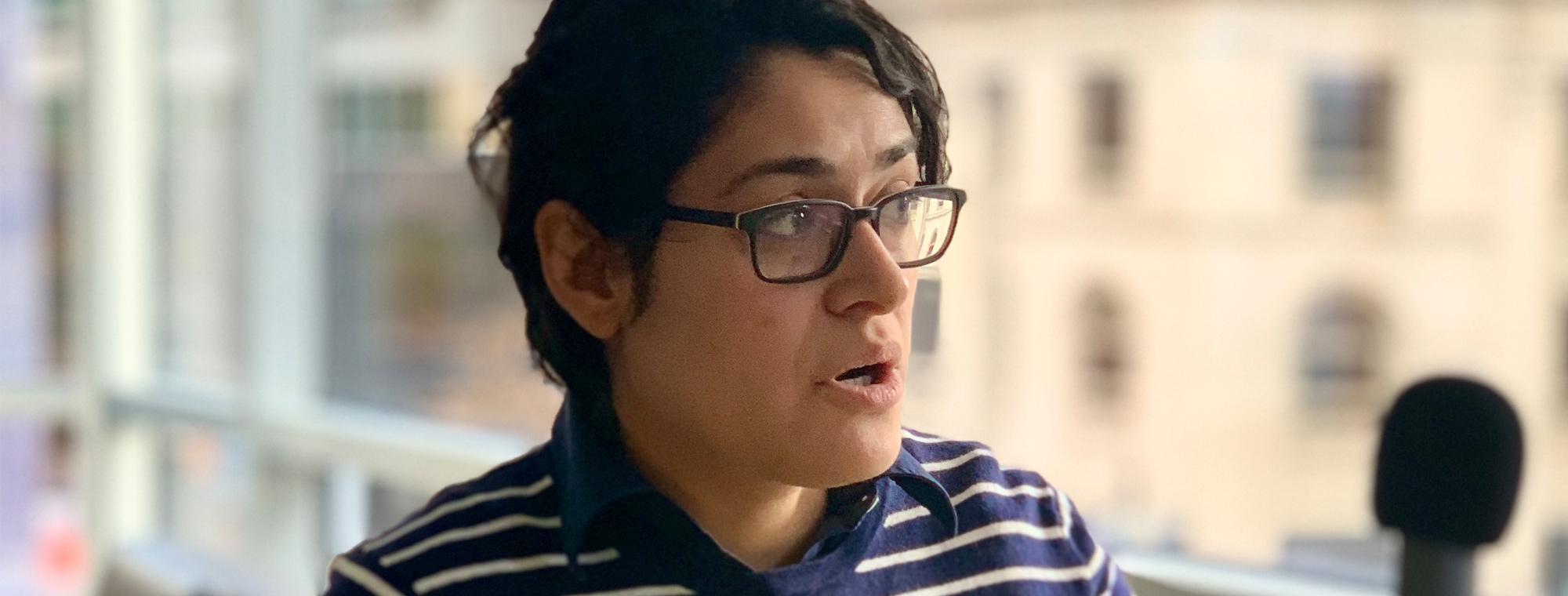SUBSCRIBE:
 [1]
[1]  [2]
[2]  [3]
[3]  [4]
[4]  [5]
[5]  [6]
[6]  [7]
[7]  [8]
[8]
The pandemic has hit Iran hard, a combination of government incompetence and US sanctions that block Iran’s access to medicine and medical supplies.
“Iran is one of the epicenters for the [COVID-19] disease,” said Ariane Tabatabai, a Middle East expert and adjunct senior research fellow at Columbia University. “It is the epicenter in the region.”
A large portion of the blame for this outcome lies with Tehran. “The Iranian government’s response to the spread of COVID-19 has been really quite terrible,” Tabatabai explained, pointing to the regime’s reliance on cover-ups and propaganda to mask its failures in dealing with the disease. The myth that the United States bio-engineered the coronavirus, for example, is a particular favorite.
But the “corruption, mismanagement, and incompetence” of the Iranian government doesn’t tell the whole story, Tabatabai warned. Sanctions - chiefly those levied by the United States following its abandonment of the Iran nuclear deal - are adding another deadly complication.
“It’s important to note that humanitarian trade with Iran is permitted under US sanctions,” she explained. “But the challenge is that it’s not always easy to implement that in practice. Companies and banks don’t want to work with Iran, regardless of the nature of that cooperation. They’re concerned about ending up on a US blacklist.”
The sanctions, coupled with the collapse of global oil prices and the inability of European countries to send adequate funds through alternative channels, are combining to make it even harder for Tehran to counter the worst pandemic in more than a century.
What’s concerning, Tabatabai explained, are those in Washington and elsewhere who see nothing wrong with this current situation. “There are folks who view the Iranian government as being on its last legs,” she said. “And if we just let the coronavirus play out, it will cause the regime to collapse.”
Aside from the obvious humanitarian and ethical questions created by this perspective, Tabatabai doesn’t see this policy as particularly practical. “The regime has demonstrated a willingness to stay and keep control of the situation regardless of the price,” she told us. “This is not a government that is going to back down.”
Other countries seem to understand this. “If you look at the region itself, there have been growing calls to get the United States to pause or ease sanctions to allow Iran to deal with this pandemic,” said Tabatabai. “It’s not that these regional states have all of a sudden found lost love for Iran; it’s because they see their own public health as threatened. . . They understand that [COVID-19] is not going to be contained by borders.”
Neither are ongoing security tensions between the United States and Iran, Tabatabai warned. “Just over the last month, two Americans have been killed in Iraq by rocket attacks perpetrated by militias there,” she said. Motivated by the twin desires to get the United States out of Iraq and to retaliate for the killing of General Qasem Soleimani, Iran and its proxies have little incentive to play nice with the Americans.
In Washington, a camp within the administration led by Secretary of State Mike Pompeo and National Security Advisor Robert O’Brien, share this bellicose mood. But with most Americans fixated on the pandemic at home - and rightly so - there is precious little bandwidth to provide a check on the White House’s worst impulses.
“By all accounts, the President himself doesn’t seem inclined to go to war with Iran,” Tabatabai cautioned. Neither do the Iranians “want an open, direct conflict with the world’s largest military power, and a nuclear power at that.” But this dynamic is very hard for either side to control, even as they struggle to cope with virus outbreaks within their own borders. One spark might set everything aflame.
“As all of the tensions and events of [the last year] show, once you start escalating, it’s really, really hard to control. And so the bigger concern for me is stumbling into a conflict that nobody really wants.”
About Press the Button: in addition to "The Interview" in which Joe Cirincione sits down with prominent thinkers, legislators, activists, and grantees working on nuclear weapons issues for a short, illuminating conversation, episodes have two other segments: "Early Warning" — a round-up of the most pressing nuclear news in 7 minutes, roughly the same amount of time the US president has to authorize a nuclear weapons launch in the event of an incoming attack on the United States; and "In the Silo" — a monthly, close-up look at key nuclear issues and events around the world, utilizing field recordings, media clips, interviews, and extensive narration.
SEE ALL EPISODES [9]
